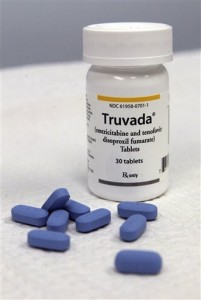Decades ago, human immunodeficiency virus (HIV) and acquired immunodeficiency syndrome (AIDS) were seen as relentless diseases whose seriousness was equivalent to that of a death sentence. However, in 2001, medical research teams and pharmaceutical manufacturers stepped up to the plate to take a swing at HIV. The manufacturing of HIV treatments by Gilead Sciences Inc. was nothing short of a home-run as the medications Viread, Truvada, and Tenofivir were proven effective in managing these seemingly unstoppable illnesses. Because of this advancement, today patients who have been diagnosed with HIV and AIDS are able to live seemingly normal lives. But, what if HIV could be stopped in its tra cks before it even entered the body?
cks before it even entered the body?
According to the U.S. Food and Drug Administration, there may be an answer- a medicine known to Americans as Truvada. Previously prescribed as a treatment for patients with HIV to contain the virus and prevent further multiplication throughout the body, which could lead to serious AIDS infections, Truvada has now gained traction for yet another use.
On July, 16, 2012 Truvada recieved approval by the FDA as the first medicine for preventing contraction of the human immunodeficiency virus. Researchers claim that when used properly, Truvada can prevent the transmission of HIV from an infected partner 90% of the time.
Truvada undoubtedly stands in the spotlight of HIV medical news today; however, this new breakthrough could cast a shadow on hopefuls as it may land patients in the emergency room for a different reason. As with any medication, Truvada comes with adverse side effects and risks, among these include lactic acidosis and serious, potentially fatal liver or kidney damage. HIV medications are infamous for the toll they take on the liver, many (such as Viread) have even received black boxed warnings from the FDA to raise awareness of this risk.
Before taking Truvada, patients must understand these implications and keep themselves informed. It is important for patients to spend time consulting their doctor about the risks and benefits before committing to this treatment, as using this medication could be a life-changing decision. Thoroughly research all costs, including the dollar price, which could be as expensive $14,000 per year, or the price you could have to pay for a permanently injured liver. Ask yourself: can you afford to take on these risks? If so, Truvada could be one of the strongest barriers between you and HIV.
0."/>